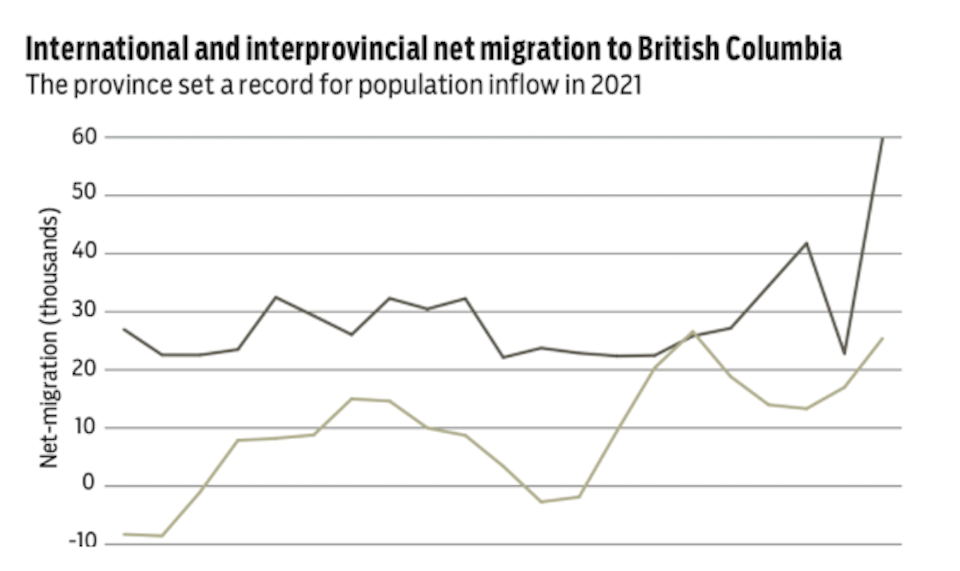The high cost of everything from housing to gas hasn’t stopped people from making B.C. their home.
Last year, 100,000 people moved to B.C. – a new record, according to the province. B.C. saw its highest level of net inter- national immigration since it started keeping records in the early 1950s, according to Statistics Canada data, and interprovincial in-migration hit a six-year peak. The flow of people from other provinces was at its second-highest level since the early 1990s, when, for four consecutive years, approximately 40,000 people moved to the province from other parts of Canada.
Additionally, net international immigration more than doubled over the past year, jumping 161.4 per cent to 59,665 people in 2021 from 22,819 in 2020. B.C.’s net immigration in 2021 was 30 per cent higher than its previous 1996 peak of 45,749.
In 2022’s first two quarters, international net migration into B.C. was 70 per cent higher than it was in the first two quarters of 2021 – the year with the highest net international migration on record.
Within Canada, Alberta is B.C.’s biggest source of net interprovincial migration. This has been the case since 2008, with the exception of a five-year period from 2011 to 2015. From the early 1990s until 2008, net migration from Ontario out- paced that from Alberta.
According to a recent Statistics Canada report, B.C. and Ontario have been the principal beneficiaries of interprovincial migration. The largest migratory flow in the country is between Alberta and British Columbia. It surpasses the pace of migration between Canada’s two largest provinces, Ontario and Quebec. B.C. claims four of Canada’s five fastest-growing metro areas, and none of them are in Metro Vancouver. Kelowna, Chilliwack, Kamloops and Nanaimo (along with London, Ontario) all had 10 per cent population growth over the past six years. Vancouver’s population growth, by comparison, was 4.8 per cent.
B.C. had negative net inter- provincial migration with only two regions in Canada over the past two years: The Northern Territories and Atlantic Canada. A 2021 Royal Bank of Canada (TSX:RY) report attributed migration to Atlantic Canada to lower COVID-19 numbers and cheaper housing prices.
Earlier this year, the B.C. government made a change that al- lows for the easier transfer of international health-care and child-care credentials to the province.
The provincial government anticipates this change will help bring more people with in-demand skills to B.C.



